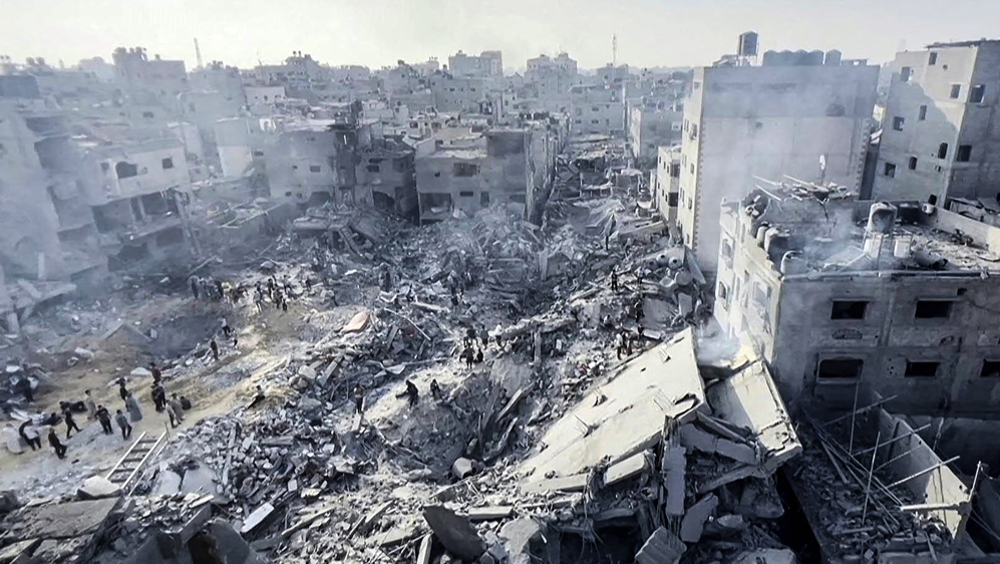Gaza urges Egypt to stop project to flood border with water
Palestinians in the besieged Gaza Strip have called on Egyptian officials to stop a project aimed at deluging the area along the border with the Israeli-besieged territory with water.
Mazen al-Banna, an engineer and vice president of the Palestinian Water Authority in the Gaza Strip, asked the Egyptian government in a statement to quash the decision which would destroy the underground tunnels linking Egypt to the Palestinian territory.
Egypt’s persistence to implement the project shows that Cairo pays no attention to the adverse impacts of such a move on the country’s environment and the destruction of Palestinian water resources in the area, the Palestinian official said.
Banna went on to say that the Egyptian government knows that it has destroyed most of the tunnels in the past few years, stressing that the execution of the project, which involves making salt water ponds across the border, will harm underground resources of drinking water utilized by Palestinians.
The statement said that the Egyptian project seriously jeopardizes Palestinian economic resources, and is in violation of common border rights.
The Palestinian official called on Egyptian officials and organizations as well as Arab organizations, including the Arab League, to intervene and stop implementation of the Egyptian project.

Over the past few weeks, Egyptian bulldozers and diggers have been working on the Egyptian side of the border with the Gaza Strip, pressing ahead with the project to flood the border area.
In mid-June, the Egyptian military said Cairo had demolished nearly 1,430 underground tunnels in 18 months.
The Egyptian army claims that the tunnels are “used by terrorists and criminals” to smuggle weapons to militants in the Sinai Peninsula.
The World Food Program (WFP), however, said in a report in February 2014 that the tunnels have represented “the main supply and commercial trade route for goods into Gaza” since 2007.
Dozens of people, mostly Palestinians, have lost their lives during the destruction of tunnels, which has intensified since the 2013 ouster of former Egyptian President Mohamed Morsi.
The coastal strip has been under the Israeli air, sea and land blockade since 2007, a situation that has caused a decline in the standards of living, unprecedented levels of unemployment and unrelenting poverty.
VIDEO | Report flags India’s violation of rights of Rohingya detainees
Turkey's foreign minister meets Syria's de facto leader in Damascus
'Next to impossible' to rescue patients from Gaza's Kamal Adwan Hospital: Director
VIDEO | Vietnam current prosperity
Report blames gasoil exports for shortage at Iranian power plants
VIDEO | Hind Rajab Foundation names Israeli war criminals vacationing after Gaza genocide
VIDEO | Australians rally for Gaza ahead of Christmas festivities
VIDEO | Attacks on Sana'a










 This makes it easy to access the Press TV website
This makes it easy to access the Press TV website